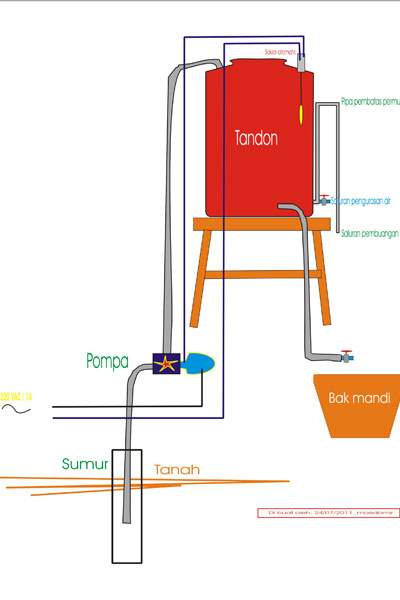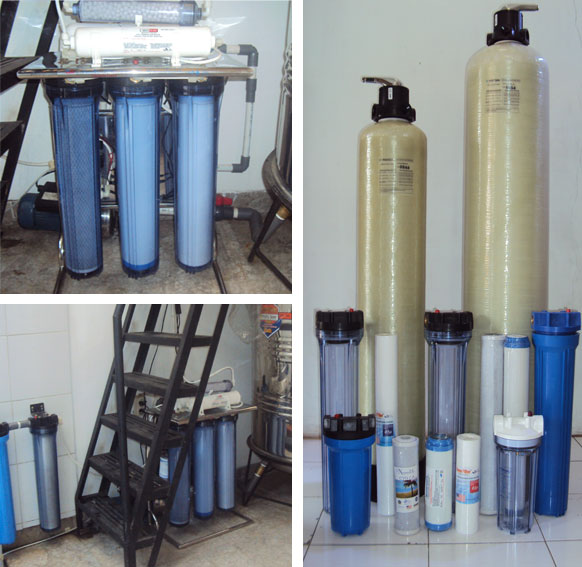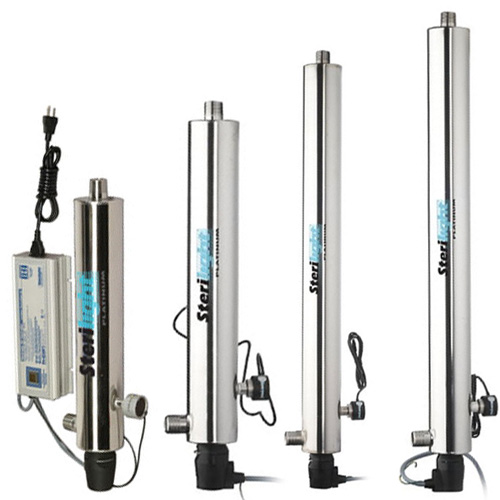
If you are new to Jakarta you may have some questions about the plumbing system in your house and the quality of your water supply. We hope that the following hints will answer your concerns.
Q: I know that the water in Jakarta is not safe to drink, but is it safe for bathing and cooking? If not, how can we deal with this problem?
A: Most residential properties in Jakarta are supplied by water either by a well at the property or city water (PAM) where available. Well water and city water should be tested by an independent lab to determine if the water is safe for household use. If the water smells funny and/or is not clear, there is a good chance that it should not be used as is. Water that is not safe for household use should.

be treated using either a gravity (sand) filter or a UV filter. You can waste a lot of money by purchasing a filter without testing the water first to determine what needs to be filtered out. The filter should be specifically designed to filter your water. For example, if the water has high iron content then a sand filter should be configured with the appropriate contents to filter out the iron. In choosing a water filter or influencing the selection of your landlord, filter maintenance should also be a consideration. Check to see that service for your particular unit is available.
Q: What about UV filters?

A: UV filters kill bugs and parasites. Only if your water tests high for these problems should you add a UV filter. UV filters are not cheap.
Q: Should chlorine be added to the water?
A: Chlorine should be considered as part of any filtration system. Chlorine helps keep bacteria out.
Q: There is always an odor in the bathroom, even after cleaning. What could cause that and what can be done about it?
A: Persistent odor in the bathroom is usually caused by mildew, improper installation of the toilet and/or a poorly designed septic waste system. Waste water should flow to the septic tank. Drain traps, proper slope of the pipe, and pipe ventilation are key issues. Septictanks do need to be emptied from time to time they will give off an odor as they fill. In most cases if the smell in the bathroom is a septic problem, it can be fixed by installing further ventilation on the exterior of the property, emptying the septic tank, or reconfiguring the drainage system. In some cases the bathroom and other parts of the house will need to be dug up to uncover the pipes. Patience is often necessary as plumbing repairs can be like a puzzle … sometimes you find or fix one piece at a time.
Q: What is the correct plumbing for a kitchen sink?
A: A kitchen sink must have a v-trap in order to prevent any smell escaping. This trap should be cleaned regularly, usually involving the building management if it is in an apartment. If you see any leak in the pipe you should immediately call an appropriate technician. For environmental reasons a grease trap should also be installed.
Q: What about the water storage tank – does that need to be cleaned?
A: Yes! If the tank comes after the filter it should be cleaned once per month. If the tank comes before the filter one time per quarter would be adequate.
Q: Are there any other common plumbing problems we should be aware of?
A: In addition to the maintenance tips mentioned above, it is recommended that hot water heaters be serviced once a year and solar water heaters twice a year. Also since most water systems depend on mechanical pumps, maintaining the condition of these pumps through routine service and maintenance is important.
If your company has a property management policy, you will want to contact them for maintenance and repairs. Make sure you have a 24-hour emergency contact number for those problems that occur outside office hours.
Provided by: Colliers International






